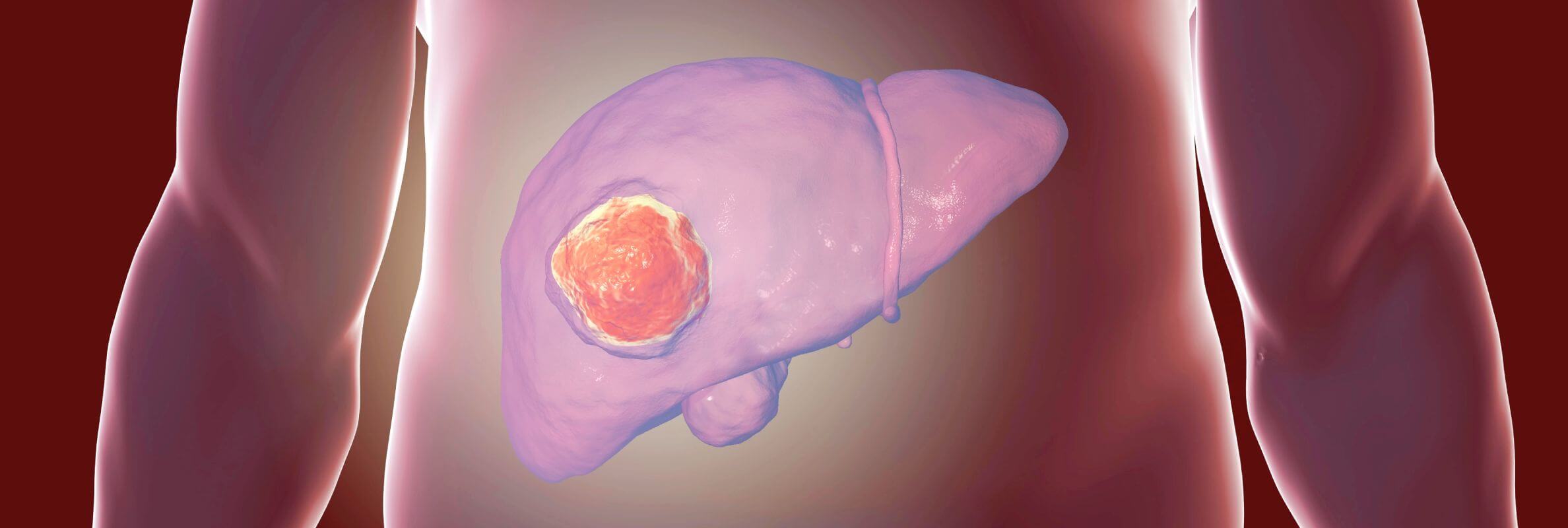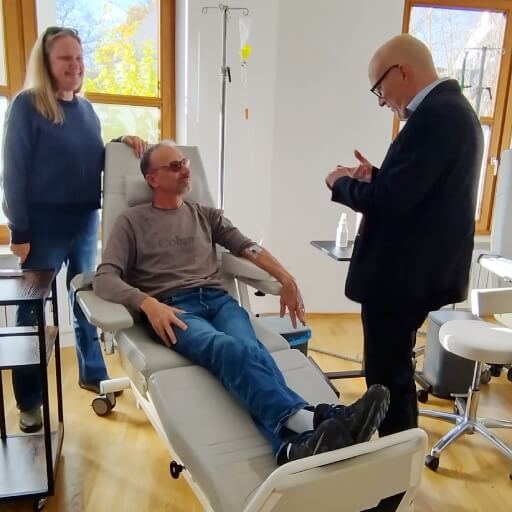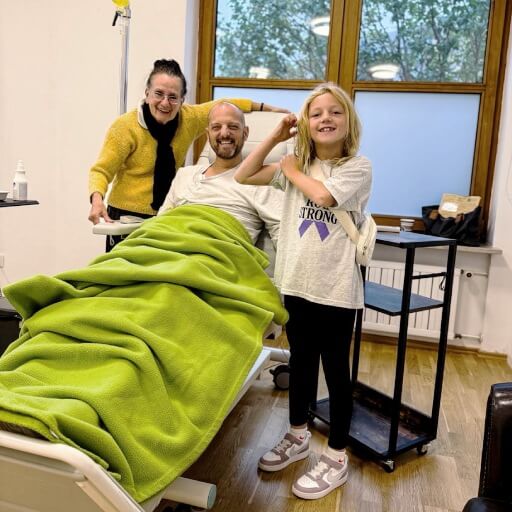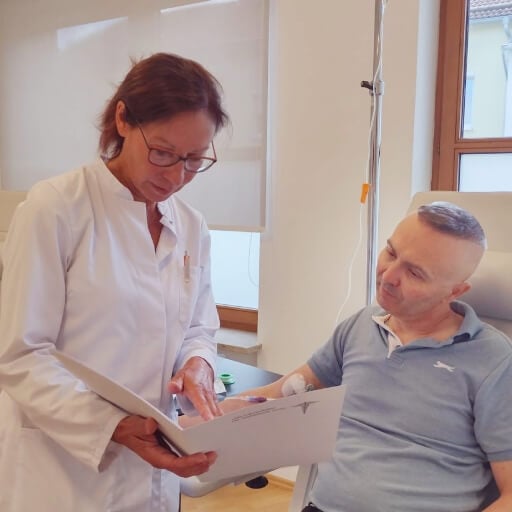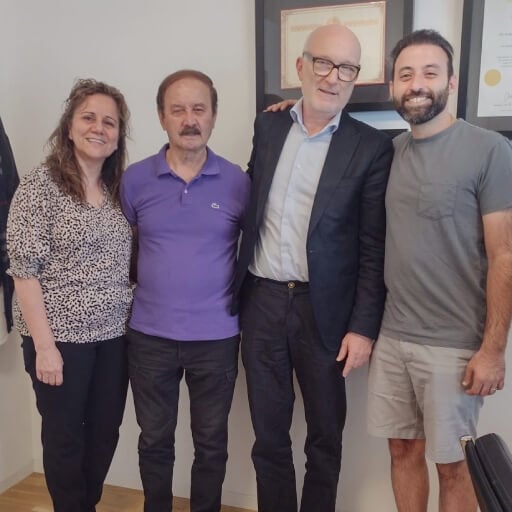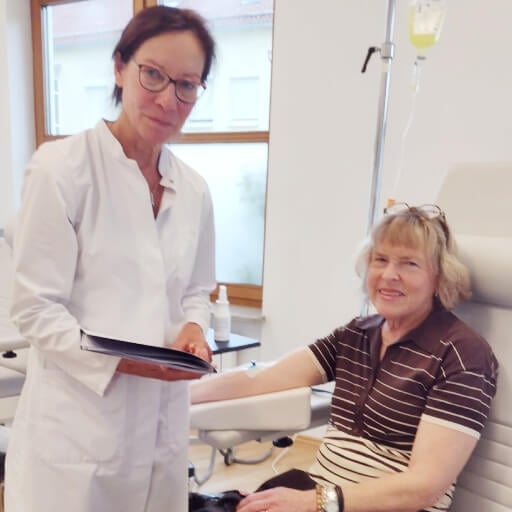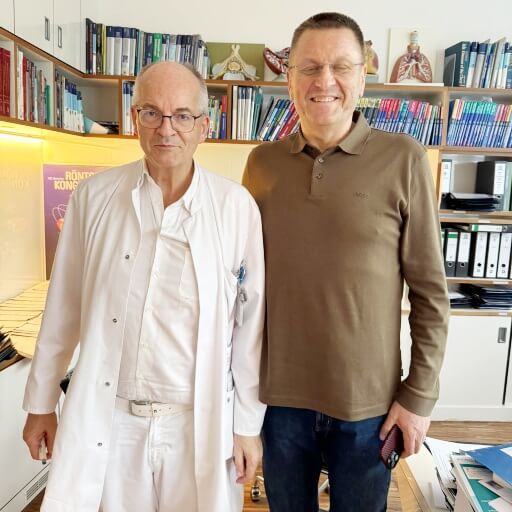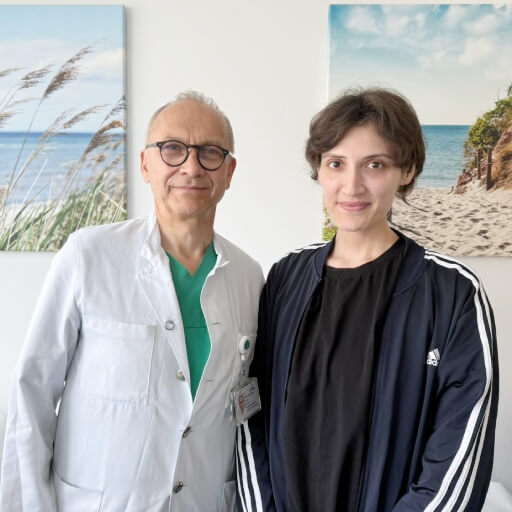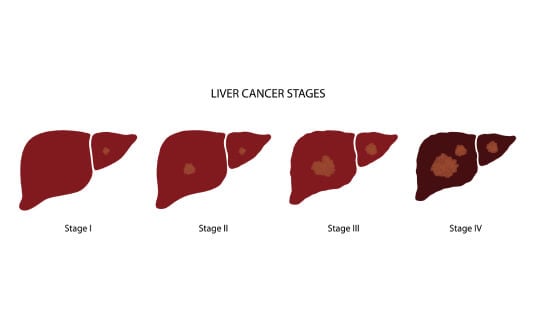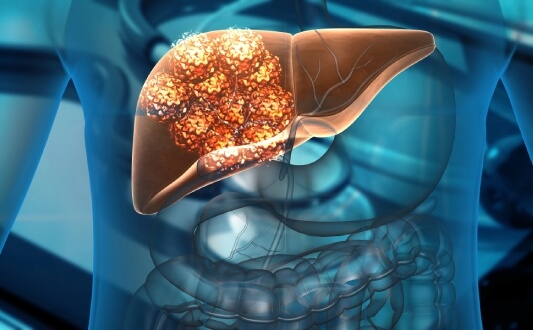Liver cancer (particularly hepatocellular carcinoma (HCC)) is a deadly disease and remains a significant global health issue [1]. It is an aggressive tumor, that often develops in individuals with chronic liver disease (alcohol-related, fatty liver disease, hepatitis B, hepatitis C, cirrhosis and others), although it can also occur in the absence of such conditions [2]. According to Global Cancer Statistics 2020 liver cancer is the sixth most commonly diagnosed cancer worldwide. It ranks as the third leading cause of cancer-related deaths responsible for approximately 830,000 deaths in 2020 [3]. The prevalence of HCC is generally higher in males than females [4]. According to the World Health Organization (WHO) liver cancer is projected to cause over one million deaths in 2030 [5-6]. However, with the development of new liver cancer stage 4 treatments (available in Europe) the survival of patients with liver cancer and their quality of life are improving.
Symptoms of Stage 4 Liver Cancer
At stage 4 liver cancer has spread beyond the liver to other parts of the body. Liver cancer stages 4 symptoms include:
- Jaundice
- Ascites
- Unexplained weight loss
- Severe fatigue and weakness
- Abdominal pain and swelling
- Loss of appetite and nausea
- Swollen legs (edema)
In metastatic cases (where liver cancer stage 4 has spread to distant organs) symptoms may vary depending on the area affected. For example 一 bone metastases may cause severe bone pain and fractures; lung metastases may cause difficulty breathing and a persistent cough.
Diagnosis of Stage 4 Liver Cancer
Early diagnosis is challenging because liver cancer often progresses silently. However several diagnostic tools help detect stage 4 liver cancer and assess the extent of metastasis:
- AFP test (alpha-fetoprotein blood test)
- CT scans and MRI scans
- Biopsy
Doctors determine the extent of metastasis using imaging scans and biopsy results (which help guide holistic treatment decisions). Since the stage 4 liver cancer prognosis is poor an early and accurate diagnosis can improve treatment outcomes and manage symptoms effectively.
Standard Treatment Approaches for Stage 4 Liver Cancer
Liver cancer treatment stage 4 has several primary objectives. Among many these include the following: to slow the progression of the disease, relieve symptoms and improve quality of life.
Chemotherapy is one of the most common treatment options for stage 4 liver cancer. Specifically this approach works by targeting rapidly dividing cancer cells throughout the body. As a result 一 it helps shrink tumors and delay disease progression. It is important to note, that the effectiveness of chemotherapy at this stage is often limited. Moreover, as many know it can cause significant side effects (e.g., fatigue, nausea and a weakened immune system).
Radiation therapy may be used to control pain and reduce the size of tumors. As reported in literature this strategy is especially useful in cases, where cancer has spread to the bones or other sensitive areas. We would like to note that radiotherapy does not cure the disease. Nevertheless, it plays an important role in palliative care (in particular, it helps relieve discomfort and improve a patient's ability to function).
Targeted therapy is a more advanced treatment. It focuses on specific pathways or proteins involved in cancer growth and spread. By doing so 一 targeted therapies can slow tumor progression more precisely than traditional chemotherapy. However, as the evidence reports, their effectiveness depends on the genetic makeup of the tumor and individual response to treatment.
Immunotherapy is designed to help the body's immune system recognize and attack cancer cells. According to the research evidence this approach has demonstrated positive outcomes in treating various advanced cancers (including stage 4 liver cancer). Immunotherapy can enhance the body's natural defenses. By doing so it can improve survival in some patients. However, responses vary. In addition, side effects (inflammation, fatigue and others) may occur.
Liver transplantation is generally not considered a viable option for stage 4 liver cancer. Once the cancer has spread beyond the liver to distant organs the risks outweigh the potential benefits. In other words, patients with liver cancer stage 4 are not eligible for transplant procedures.
New and Innovative Treatments for Stage 4 Liver Cancer
For patients with liver stage 4 cancer it is highly important to manage the disease effectively. This is why they should explore both standard and innovative treatments. As discussed earlier standard treatments are associated with low survival rates. This is why (to address this issue) researchers are focusing on alternative medicine (innovative therapies) which may offer better outcomes. Some of these treatments include dendritic cell therapy, chemoembolization (TACE), hyperthermic intraperitoneal chemotherapy (HIPEC) and hyperthermia therapy.
Dendritic Cell Therapy
Dendritic cell therapy is an advanced form of immunotherapy. This approach enhances the immune system's ability to recognize and attack cancer cells more effectively. As discussed above traditional treatments (i.e., chemotherapy and radiation) can damage both healthy and cancerous tissues. In contrast 一 dendritic cell therapy targets stage 4 liver cancer cells specifically (helping reduce harm to surrounding organs).
When taking a closer look, this personalized approach involves modifying a patient's immune cells to better identify cancer markers. Then, these cells are reinfused to stimulate a stronger immune response [7].
We would like to note, that this therapy was recognized with a Nobel Prize in 2011. Since then it has evolved into a promising option for patients with metastatic liver cancer. As the evidence reports it provides many benefits (including improved stage 4 liver cancer prognosis and potential long-term disease control).
To better understand how this therapy works and its future in cancer treatment we would like to recommend watching this video interview with immunologist Dr. Frank Gansauge. In this interview he shares over 22 years of expertise and real-life cases where dendritic cell therapy helped prevent tumor recurrence for more than five years.
Expert Insights from Prof. Gansauge: The Power of Dendritic Cell Therapy in Cancer Treatment
Interventional Radiology
Interventional radiology (IR) offers minimally invasive, image-guided procedures, that can target tumors precisely (while preserving healthy liver tissue). As discussed in research, these techniques have become essential in the management of both primary hepatocellular carcinoma (HCC) and metastatic liver disease.
Overall, it is necessary to note, that interventional approaches provide crucial treatment options for patients with inoperable tumors or individuals with recurrent disease. In particular 一 they can extend survival and maintain quality of life. Moreover these procedures can be deployed independently for early-stage disease. They can also be used as complementary therapies alongside systemic treatments for more advanced cases.
Thermal ablation includes radiofrequency ablation (RFA) and microwave ablation (MWA), among other methods. As the research evidence argues, it is the most widely adopted form of image-guided tumor destruction in hepatocellular carcinoma (HCC). These techniques operate by delivering intense heat directly into the tumor (inducing coagulative necrosis).
According to studies, thermal ablation is especially beneficial in early-stage HCC. For example, clinical trials report local tumor control rates exceeding 90% for tumors under 3 cm; 5-year overall survival rates are comparable to surgical resection in selected patients. Typically this approach is used as part of a multimodal strategy in patients with metastatic colorectal cancer involving the liver. It helps prolong progression-free intervals and improve survival.
Cryoablation induces cellular death via ice crystal formation and vascular compromise. It is used in patients with HCC who are poor candidates for surgery or thermal therapies. As reported in literature this method provides better visualization of the ablation zone. Moreover, there is also a reduced risk of thermal injury to adjacent structures (e.g., the bile ducts).
Recent clinical evaluations have demonstrated disease control rates of around 70-75% at 12 months for small to medium-sized HCC lesions. In addition, cryoablation is used for treating tumors adjacent to critical vascular or biliary anatomy 一 this is due to its tissue-sparing effects and favorable safety profile.
Electrochemotherapy (ECT) combines high-voltage electric pulses with chemotherapeutic delivery. According to the research data it is being explored as an innovative treatment option for unresectable or recurrent liver cancers. For example, studies involving HCC and liver metastases have shown tumor response rates ranging from 60% to 68%. However, we would like to note, that these outcomes were observed when ECT was applied to lesions near vital hepatic vessels (where thermal ablation poses risks).
Specifically, the procedure works by temporarily increasing cell membrane permeability through electrical pulses. This allows chemotherapy agents to penetrate cancer cells more effectively at lower doses. As a result 一 this selective targeting mechanism reduces systemic side effects. At the same time it maximizes local drug concentration. In addition, as reported in the research, ECT has demonstrated effectiveness in cases resistant to conventional chemotherapy. It is important to note that it can be performed repeatedly when needed.
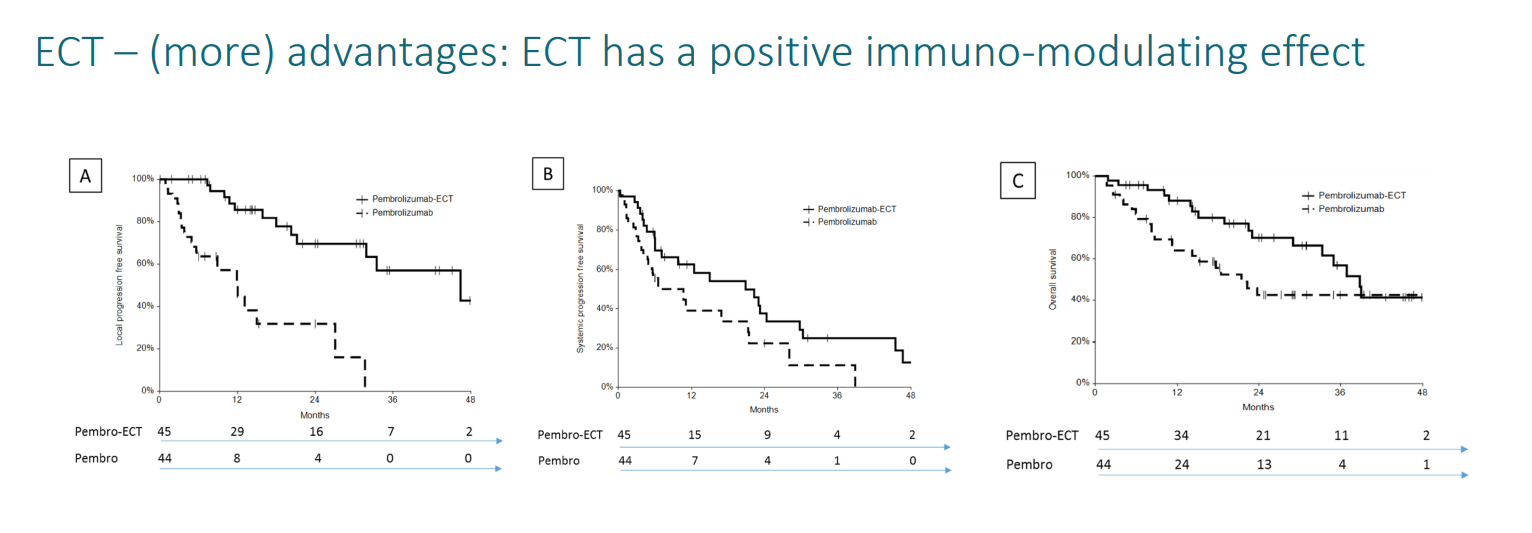
Furthermore, ECT has a capacity to stimulate immune-mediated responses. This supports its use in combination with immunotherapy. As literature discusses, this method can potentially enhance systemic control in patients with advanced hepatic disease.
Electrochemotherapy Explained: Why This "New Kid on the Block" is Changing Cancer Treatment
Transarterial chemoembolization (TACE) is a minimally invasive treatment. This approach delivers concentrated chemotherapy directly to liver tumors. Simultaneously it cuts off their blood supply. As a result 一 drugs remain localized and more effective while damage to healthy tissues is minimized [8].
In particular, this approach is beneficial for patients with inoperable tumors. As argued by researchers, this is because it can significantly slow disease progression and improve quality of life. In fact studies show that TACE offers higher response rates than systemic chemotherapy. In some cases it has helped patients live for over a decade post-treatment.
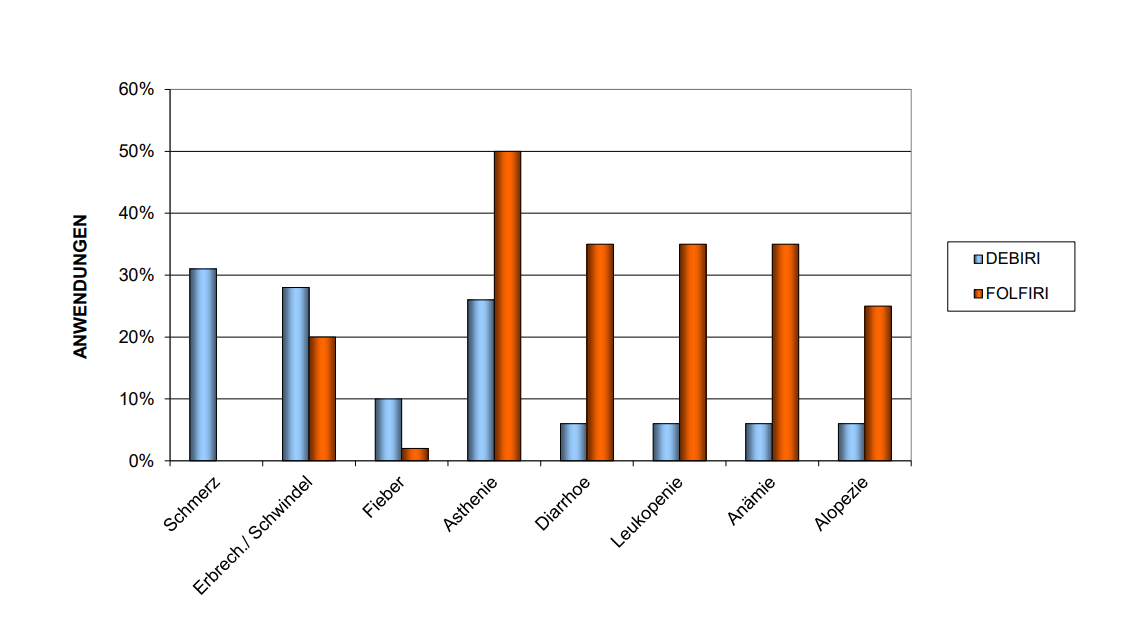
**DEBIRI = TACE, FOLFIRI = IV therapy; with DEBIRI, 90% of the patients have improved quality of life for 32 weeks
Professor Attila Kovács, a leading radiologist in interventional oncology, highlights that TACE can achieve up to 15 times higher drug concentration within the tumor compared to standard chemotherapy, making it especially effective for liver metastases. To better understand how TACE works and its potential benefits, it is highly recommended to watch Professor Kovács's interview, where he discusses real patient outcomes and explains why TACE is considered one of the most advanced treatments for stage 4 liver cancer.
Prof. Kovács: When to Use DEB-TACE, Conventional TACE, or Radioembolization (TARE)
Hyperthermic Intraperitoneal Chemotherapy (HIPEC)
Hyperthermic intraperitoneal chemotherapy (HIPEC) is an advanced, FDA-approved cancer treatment. It delivers heated chemotherapy directly into the abdominal cavity after tumor removal. In other words, HIPEC bathes the cancerous area with high-dose drugs 一 this improves drug penetration and effectiveness while reducing systemic side effects [9].
We would like to add that HIPEC is primarily used for advanced abdominal cancers. However, research in oncology suggests, that this approach may benefit select stage 4 liver cancer patients by targeting peritoneal metastases. In fact, studies show improved survival rates of such patients compared to standard chemotherapy alone. Therefore, HIPEC can be considered a promising stage 4 liver cancer treatment.
Hyperthermia Therapy
Hyperthermia therapy is another innovative treatment for stage 4 liver cancer. It involves exposing cancerous tissues to elevated temperatures (typically between 40°C and 45°C) to weaken and destroy cancer cells. This treatment damages cancer cell proteins and membranes, increases blood flow to tumors and impairs the cells' ability to repair DNA. By doing so hyperthermia promotes cancer cell death. In addition, it also improves the immune system's response.
According to literature, there are two main forms: localized hyperthermia and whole-body hyperthermia. Localized hyperthermia targets tumors directly using technologies like microwave or radiofrequency ablation. In turn, whole-body hyperthermia raises overall body temperature to stimulate immune activity against widespread disease.
As the research evidence indicates the combination of hyperthermia with other treatments (e.g., TACE or systemic chemotherapy) can reduce tumor size and slow disease progression. Moreover, it can potentially improve survival rates. We would like to say that this treatment approach is still considered experimental in many countries. Nevertheless, hyperthermia therapy is considered a valuable complementary option to treat the fourth stage of liver cancer and enhance patient quality of life.
Comparative Stage 4 Liver Cancer Treatment Statistics Table
Below is a comparison of traditional and innovative stage 4 liver cancer treatment options, focusing on effectiveness, survival rates, side effects, treatment duration, and cost.
| Characteristics/Therapy type | 2-Year Survival Rate | Response Rate | Duration | Side Effects |
|---|---|---|---|---|
| Standard Treatment | ~25% for advanced cancer | Less than 10% | Several cycles | Severe (nausea, fatigue, hair loss, immunosuppression, skin irritation) |
| Innovative Methods | ~60% for advanced cancer | 45-65% | Up to 4 sessions | Mild (localized discomfort) |
Treatment Costs for 4 Stage Liver Cancer
| Treatment Method | GERMANY* | GB | USA |
|---|---|---|---|
| Standard Treatment | €80,000 - €150,000 full course | €90,000 - €165,000 full course | €100,000 - €180,000 full course |
| Innovative Methods | €25,000 - €60,000 full course | €70,000 - €120,000 full course | €100,000 - €150,000 full course |
* The estimated costs are approximate and may vary depending on the country, medical facility, treatment protocol, number of sessions, and individual patient needs.
Anitha Cherian's and Robert Franklin Smith's Experiences
Understandably, a diagnosis of stage 4 liver cancer is often devastating. However many patients have significantly improved their quality of life through the best treatment for stage 4 liver cancer.
Anitha Cherian (Canada) was diagnosed with stage 4B non-small cell lung cancer. As she shared, the disease had spread to her brain, liver, bones, and left adrenal gland. Despite the diagnosis, Anitha decided to fight. She went to Germany (looking for a second opinion) where she received advanced treatment at Dr. Gansauge's cancer center. Her son, Nigel Cherian, expressed how much they appreciated the support provided to them by Booking Health. As he recalled, the company arranged translation services, transportation and medical appointments. In this regard, Nigel noted, that their communication was highly efficient. He also said that they never regretted choosing the service.
In turn, Robert Franklin Smith was from the USA. He was diagnosed with pancreatic cancer with liver metastases. To manage his condition he was undergoing chemotherapy following a liver metastasis resection. However, he and his wife, Anna, decided to seek additional options. After consulting with Booking Health they traveled to LDG Laboratories Dr. Gansauge Berg/Specialized Rehabilitation Clinic Jägerwinkel Bad Wiessee for dendritic cell therapy. After receiving this therapy Anna shared, that they were impressed by how professional the medical team was. Moreover, they expressed gratitude to Dr. Gansauge for being so knowledgeable and providing both medical guidance and a supportive atmosphere during such difficult times. As Anna shared, she felt that this treatment offered hope where traditional approaches in the US had not presented similar options.

A Medical Journey: Every Step of the Way With Booking Health
Finding the best treatment strategy for your clinical situation is a challenging task. Being already exhausted from multiple treatment sessions, having consulted numerous specialists, and having tried various therapeutic interventions, you may be lost in all the information given by the doctors. In such a situation, it is easy to choose a first-hand option or to follow standardized therapeutic protocols with a long list of adverse effects instead of selecting highly specialized innovative treatment options.
To make an informed choice and get a personalized cancer management plan, which will be tailored to your specific clinical situation, consult medical experts at Booking Health. Being at the forefront of offering the latest medical innovations for already 12 years, Booking Health possesses solid expertise in creating complex management programs in each individual case. As a reputable company, Booking Health offers personalized treatment plans with direct clinic booking and full support at every stage, from organizational processes to assistance during treatment. We provide:
- Assessment and analysis of medical reports
- Development of the medical care program
- Selection of a suitable treatment location
- Preparation of medical documents and forwarding to a suitable clinic
- Preparatory consultations with clinicians for the development of medical care programs
- Expert advice during the hospital stay
- Follow-up care after the patient returns to their native country after completing the medical care program
- Taking care of formalities as part of the preparation for the medical care program
- Coordination and organization of the patient's stay in a foreign country
- Assistance with visas and tickets
- A personal coordinator and interpreter with 24/7 support
- Transparent budgeting with no hidden costs
Health is an invaluable aspect of our lives. Delegating management of something so fragile yet precious should be done only to experts with proven experience and a reputation. Booking Health is a trustworthy partner who assists you in pursuing stronger health and a better quality of life. Contact our medical consultant to learn more about the possibilities of personalized treatment with innovative methods and with leading specialists in this field.
Advanced Cancer Treatment: Patient Success Stories with Booking Health
FAQ: 4 Stage Liver Cancer: Full Guide and Treatment Options
Send request for treatmentStage 4 liver cancer is an advanced stage, where the disease has spread beyond the liver to distant organs or to remote lymph nodes. At this point the cancer is considered metastatic. Liver cancer stage 4 treatment primarily focuses on slowing disease progression, managing symptoms and extending the patient's life.
Liver cancer symptoms stage 4 include persistent abdominal pain, jaundice (yellowing of the skin and eyes), unintended weight loss and chronic fatigue. Patients may also experience swelling in the abdomen (ascites), nausea and a weakened immune system.
Options include standard therapies (chemotherapy, radiation). Advanced methods include dendritic cell therapy, interventional radiology (TACE, ablation), and hyperthermia. These innovative approaches aim to attack tumors more precisely (while minimizing damage to healthy tissues).
Liver cancer prognosis stage 4 is generally challenging (as the disease is advanced). However, it varies significantly based on the patient's overall health and their response to treatment. While traditional outcomes are often limited innovative therapies are showing promising results in improving long-term disease control and survival.
Life expectancy varies but innovative treatments are helping patients live longer. While standard statistics often cite shorter timeframes, modern approaches have enabled some patients to survive for years, sometimes even over a decade.
Chances of surviving stage 4 liver cancer with standard treatments are approximately 25%. In contrast, data for innovative methods shows a significant improvement with survival rates reaching up to 60%. These newer therapies offer much higher response rates (45-65%) compared to traditional chemotherapy (which often has a response rate of less than 10%).
In earlier stages the cancer is localized within the liver making surgical removal or transplant a viable option. By liver stage 4 cancer, the process has metastasized to distant sites. This change in scale means, that localized surgeries are usually no longer effective, requiring systemic or advanced interventional treatments to manage the widespread disease.
Stage 4 cancer liver most frequently spreads to the lungs, bones and the abdominal cavity (peritoneum). It can also reach distant lymph nodes and the adrenal glands.
Yes, researchers are focusing on innovative therapies like dendritic cell therapy which "trains" the immune system to attack cancer. Other advancements include electrochemotherapy (ECT) which uses electric pulses to target tumors and hyperthermic intraperitoneal chemotherapy (HIPEC) which delivers heated drugs directly to the abdominal area.
Quality of life is maintained through palliative care (hospice care) and minimally invasive procedures, such as interventional radiology. Unlike harsh chemotherapy treatments (such as TACE or ablation) have milder side effects which reduce pain and fatigue. These methods allow patients to maintain better physical function and comfort.
For stage 4 liver cancer, the 2-year survival rate is about 25% with standard treatment and approximately 60% with innovative therapies (e. G. , tace or dendritic cell therapy).
In stage 4 liver cancer, standard treatments show a response rate of under 10%. On the other hand, innovative therapies (e. G. , dendritic cell therapy, hipec, or interventional radiology strategies) can achieve around 45-65%.
Standard treatments for stage 4 liver cancer typically extend over multiple cycles. In turn, innovative therapies (e. G. , interventional radiology, dendritic cell therapy, etc. ) often require up to four sessions, depending on the protocol.
Standard treatment for stage 4 liver cancer often leads to severe side effects such as nausea, fatigue, and hair loss. In contrast, innovative treatments usually cause mild, localized discomfort and are generally well tolerated.
For patients with stage 4 liver cancer standard chemotherapy often has limited effect (due to multiple lesions or metastases).This is why, in this case, doctors use advanced treatment methods (interventional radiology, dendritic cell therapy and HIPEC or hyperthermia).
Leading German hospitals coordinate complex treatments ㄧ so patients don’t navigate alone. Imaging and interventions are scheduled step by step. Doctors adjust plans in real time, ensuring safety and maximizing treatment effects.
Germany is often chosen by international patients for advanced liver cancer treatment (due to therapies unavailable in many countries). Patients can undergo dendritic cell therapy, interventional procedures, HIPEC and hyperthermia under experienced supervision. This allows personalized treatment, better symptom management and structured follow-up.
Choose treatment abroad and you will for sure get the best results!
Authors:
This article was edited by medical experts, board-certified doctors Dr. Nadezhda Ivanisova, and Dr. Bohdan Mykhalniuk. For the treatment of the conditions referred to in the article, you must consult a doctor; the information in the article is not intended for self-medication!
Our editorial policy, which details our commitment to accuracy and transparency, is available here. Click this link to review our policies.
Sources:
[1] Shinu Chacko, Subir Samanta. Hepatocellular carcinoma: A life-threatening disease. Biomed Pharmacother. 2016 Dec:84:1679-1688. doi: 10.1016/j.biopha.2016.10.078. Epub 2016 Nov 4. [DOI] [PubMed]
[2] Amanda J Craig, Johann von Felden, Teresa Garcia-Lezana, Samantha Sarcognato, Augusto Villanueva. Tumour evolution in hepatocellular carcinoma. Nat Rev Gastroenterol Hepatol. 2020 Mar;17(3):139-152. doi: 10.1038/s41575-019-0229-4. Epub 2019 Dec 2. [DOI] [PubMed]
[3] Hyuna Sung, Jacques Ferlay, Rebecca L Siegel et al. Global Cancer Statistics 2020: GLOBOCAN Estimates of Incidence and Mortality Worldwide for 36 Cancers in 185 Countries. CA Cancer J Clin. 2021 May;71(3):209-249. doi: 10.3322/caac.21660. Epub 2021 Feb 4. [DOI] [PubMed]
[4] Jacques Ferlay, Isabelle Soerjomataram, Rajesh Dikshit et al. Cancer incidence and mortality worldwide: sources, methods and major patterns in GLOBOCAN 2012. Int J Cancer. 2015 Mar 1;136(5):E359-86. doi: 10.1002/ijc.29210. Epub 2014 Oct 9. [DOI] [PubMed]
[5] Mehmet Sayiner, Pegah Golabi, Zobair M Younossi. Disease Burden of Hepatocellular Carcinoma: A Global Perspective. Dig Dis Sci. 2019 Apr;64(4):910-917. doi: 10.1007/s10620-019-05537-2. [DOI] [PubMed]
[6] Shivani R Kale, Geeta Karande, Anand Gudur et al. Recent Trends in Liver Cancer: Epidemiology, Risk Factors, and Diagnostic Techniques. Cureus. 2024 Oct 23;16(10):e72239. doi: 10.7759/cureus.72239. [DOI] [PMC free article]
[7] Wenya Li, Guojie Chen, Hailin Peng et al. Research Progress on Dendritic Cells in Hepatocellular Carcinoma Immune Microenvironments. Biomolecules. 2024 Sep 16;14(9):1161. doi: 10.3390/biom14091161. [DOI] [PMC free article]
[8] Elliott L Fite, Mina S Makary. Transarterial Chemoembolization Treatment Paradigms for Hepatocellular Carcinoma. Cancers (Basel). 2024 Jul 1;16(13):2430. doi: 10.3390/cancers16132430. [DOI] [PMC free article]
[9] Vegar Johansen Dagenborg, Kristoffer Watten Brudvik, Christin Lund-Andersen et al. Cytoreductive Surgery With Hyperthermic Intraperitoneal Chemotherapy and Liver Resection is a Treatment Option for Patients With Peritoneal and Liver Metastases From Colorectal Cancer. Ann Surg. 2024 Aug 26;280(5):745–752. doi: 10.1097/SLA.0000000000006492. [DOI] [PMC free article]
Read:
Treatment of stage 4 liver cancer in Germany
Treatment Methods and Advanced Therapies for Liver Metastases
Article menu:
- Symptoms of Stage 4 Liver Cancer
- Diagnosis of Stage 4 Liver Cancer
- Standard Treatment Approaches for Stage 4 Liver Cancer
- Comparative Stage 4 Liver Cancer Treatment Statistics Table
- Anitha Cherian's and Robert Franklin Smith's Experiences
- A Medical Journey: Every Step of the Way With Booking Health
- FAQ: 4 Stage Liver Cancer: Full Guide and Treatment Options
Don't know where to start?
Contact Booking Health